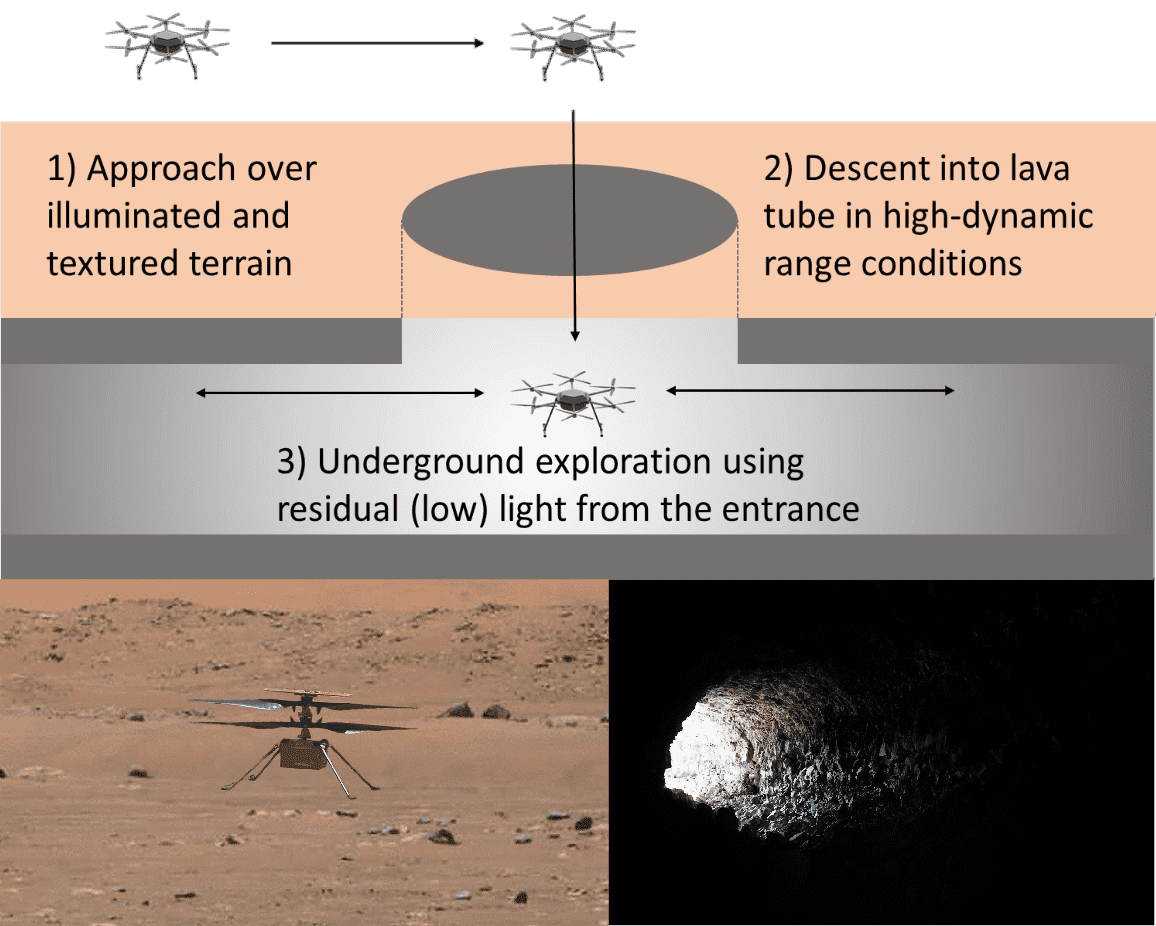This repository contains code that implements the event-based VIO algorithm described in Mahlknecht et al. RAL'22. The paper can be found here, and datasets can be found here. If you use this code in an academic context, please cite the following work:
Florian Mahlknecht, Daniel Gehrig, Jeremy Nash, Friedrich M. Rockenbauer, Benjamin Morrell, Jeff Delaune, Davide Scaramuzza, "Exploring Event Camera-based Odometry for Planetary Robots", IEEE Robotics and Automation Letters (RA-L), 2022
@article{Mahlknecht22RAL,
title={Exploring Event Camera-based Odometry for Planetary Robots},
author={Mahlknecht, Florian and Gehrig, Daniel and Nash, Jeremy and Rockenbauer, Friedrich M. and Morrell, Benjamin and Delaune, Jeff and Scaramuzza, Davide},
journal={IEEE Robotics and Automation Letters (RA-L)},
year={2022}
}Performance evaluation for (range-) visual-inertial odometry xVIO framework.
Provides an extensive toolset to evaluate frontend and backend accuracy (i.e. pose and feature tracking) as well as computational efficiency, such as realtime factor, CPU and memory usage.
The library has been tested only on Ubuntu 20.04 with Ros Noetic. Although no roscore is needed, feature tracking evaluation requires Python3 rosbag reader, therefore lifting the requirements to Ros Noetic.
Beyond ROS, the major dependencies are the X library and gflags_catkin (see dependencies.yaml). Typical installation
commands might be:
cd YOUR_ROS_WORKSPACE/
source devel/setup.zsh # or .bash if you use BASH
cd src
git clone ... x_evaluate
vcs-import < x_evaluate/dependencies.yaml
catkin build x_evaluate # DO NOT BUILD all packages, as the rpg_ros_driver might fail, but it's not neededFor the python package it is recommended to create a virtual environment and install the requirements with pip:
conda create -n x python=3.8
conda activate x
pip install -r requirements.txt
pip install . # Optionally install the x_evaluate in the python dist-packagesThe library consists of one C++ file which directly calls X library callbacks such as processIMU() from the data
read from a rosbag. In this way a runtime-independent evaluation can be performed. Results are then dumped to CSV files
and analyzed in Python, with the main module x_evaluate.
The python evaluation runs additionally dump all the main results to a pickle file, such that different runs can be easily compared and reproduced.
An evaluation run is performed by evaluate.py. A configuration file e.g. evaluate.yaml defines which datasets are
processed and based on which base parameter files, e.g. params_rpg_davis.yaml. Parameters can be overwritten for a
single sequence or for all sequences on the respective entry in evaluate.yaml. Additionally, by passing
--overrides some_param=17 some_other_param=False out-rules all other settings for the purpose of parameter tuning runs.
A simple example run:
python test/evaluate.py --configuration test/evaluate.yaml --output_folder /path/to/_out/ \
--dataset_dir /path/to_datasets --frontend XVIO --name "XVIO"And a comparison run:
python scripts/compare.py --input_folder /path/to --sub_folders _out:_out_2 ----output_folder /path/to/results